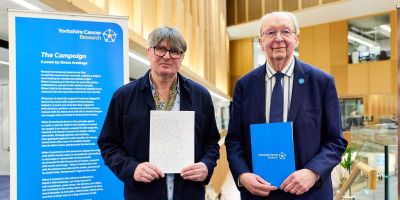The priority of improving medical treatment for firearms injuries and the need for policy change

A new review proposes innovative approaches to the treatment of firearms injuries and calls for policy changes.
Dr Scott Bowen and Professor Stuart Egginton were among a group of scientists, trauma surgeons, and public organisers from Leeds, Birmingham and São Paulo, reviewing novel and innovative approaches to the treatment of firearms injuries.
Nearly half of all global homicides can be attributed to firearms and those surviving suffer ballistic trauma, with consequences like soft-tissue damage, volumetric muscle loss, haemorrhage, bone fractures, and severe pain. In particular, injuries created by firearms impact skeletal muscle, further leading to severe disability, extended hospitalisations and poor quality of life.
Dr Scott Bowen, one of the lead researchers from the University of Leeds said:
Gun-related violence and the injuries suffered is a global issue that devastates lives in both rich but especially poor communities. We see gun-related violence often on the news as mass shootings, but more often they occur as single person incidents within local communities or during military warfare. Gun-related violence shows no signs of decreasing and many people across the globe suffer devastating injuries or death.
The open-access review article “Firearms-related skeletal muscle trauma: pathophysiology and novel approaches for regeneration”, published in NPJ Regenerative Medicine, discusses novel, innovative approaches to treatment that could alleviate muscle problems and promote muscle regeneration – even in the most severely impacted patients.
Despite these significant impacts, researchers found clear gaps in knowledge and medical treatment that need to be addressed. Dr Scott Bowen added:
“We address areas for improvement for medical treatment and policy change. This topic is of huge interest to the general public, medical professionals, scientists, and military personnel. Beyond this, governments and policymakers have a stake, due to the major impact gun violence has on socioeconomic outcomes. “
As with most trauma injuries, physical rehabilitation is the most common method for regaining muscle mass and function following ballistic or blast injuries. Another approach includes surgical intervention, such as muscle grafts. In addition, standard approaches include conservative management (RICE principle – rest, ice compression and elevation), standard medication (e.g., non-steroidal anti-inflammatory drugs; NSAIDs), direct muscle stimulation, light and acoustic waves, as well as topical negative pressure following wound injuries.
However, scientists concluded that there is a lack of effective therapies to support optimal muscle regeneration and recovery immediately after ballistic trauma. Furthermore, even though trauma care provision for both civilian and military populations is at its peak, there is still a major limitation in reversing damage, which urgently requires more innovative approaches.
The review emphasises the promising approach of regenerative medicine, with key advances for treatment reported in terms of satellite cell therapy, small-molecule therapeutics for anti-catabolic and pro-anabolic agents, and delivery of angiogenic growth factors.
In addition, the research suggests three major issues which call for further attention, including firearm laws and access, improved understanding of the basic mechanisms involved in ballistic muscle trauma and improved treatment strategies.
Co-author Bruno Langeani who works for Instituto SoudaPaz said:
By joining researchers of different fields and countries, this paper not only brings a relevant contribution to regenerative medicine related to firearm trauma, but is also an invitation for collaboration between areas. I hope this can encourage further partnerships between researchers that seek to understand the impact of armed violence and accessibility of guns with those seeking to discover better treatments for firearm victims.
The current review on acute trauma feeds into Dr Bowen’s ongoing research interests from bench-to-bedside, which relate to loss of muscle mass associated with chronic disease and ageing. As part of ongoing Medical Research Council, Heart Research UK, and Ministry of Defence grants, his laboratory are working closely with scientists at German industry and universities (Heidelberg/Dresden) to develop new drugs that help maintain muscle health. Dr Bowen also works within the European Association of Preventive Cardiology, aiding new policies and development for rehabilitation in patients with cardiovascular disease.




